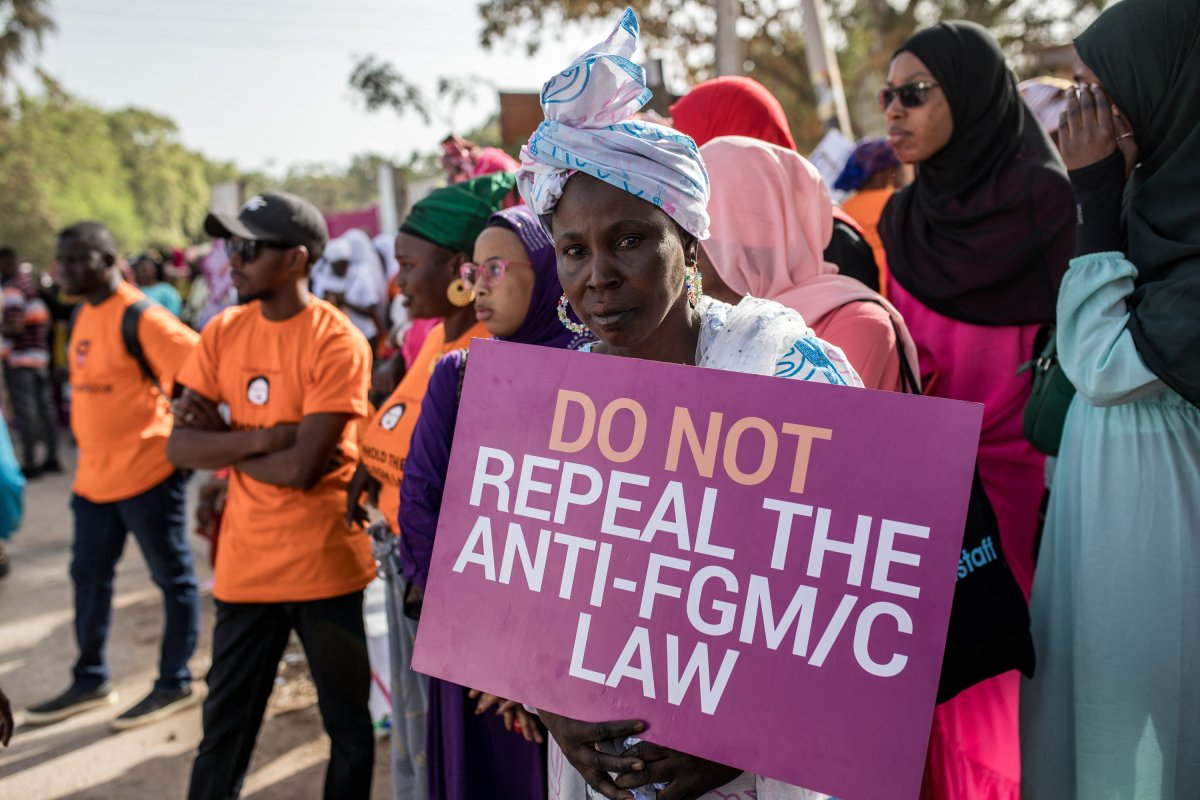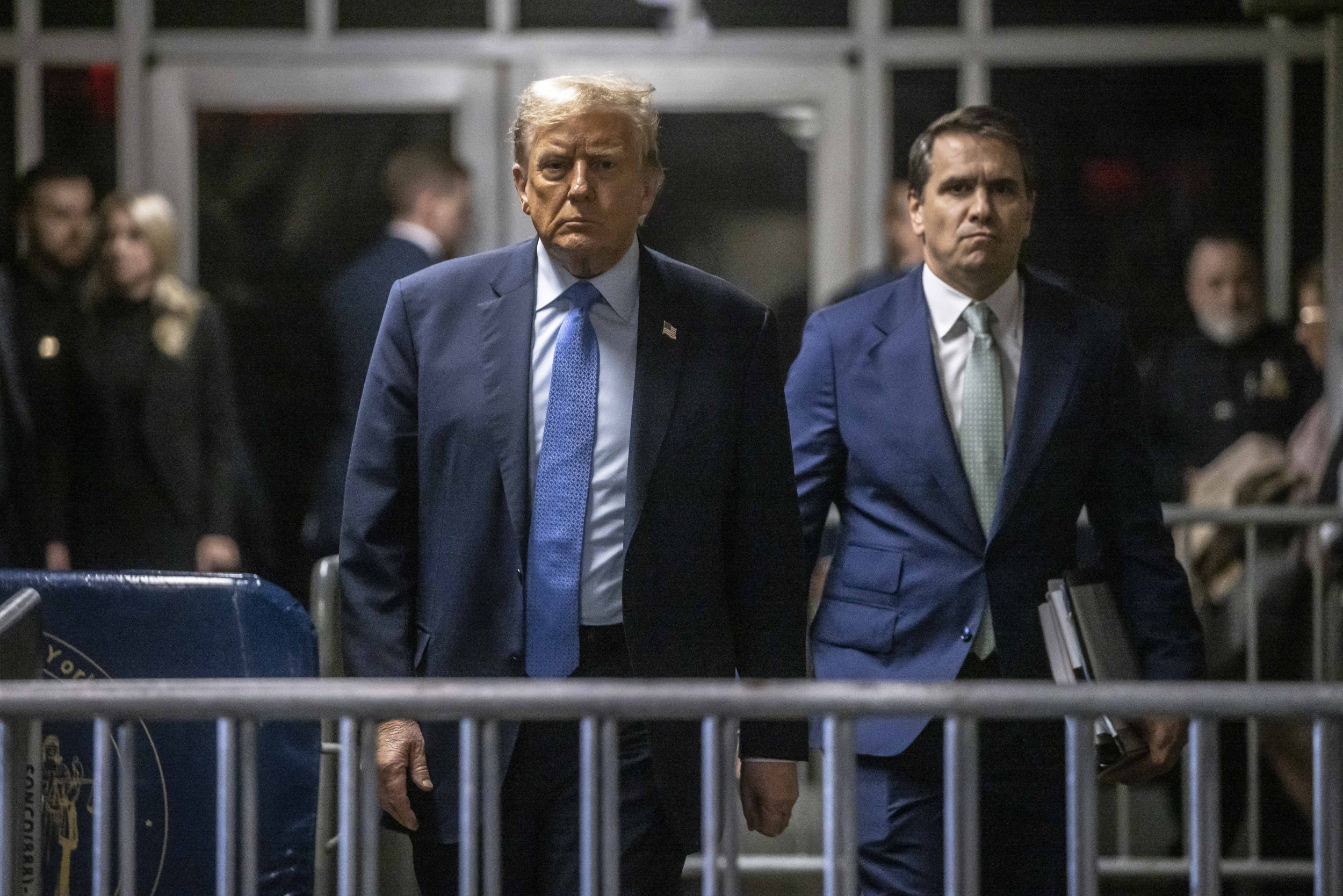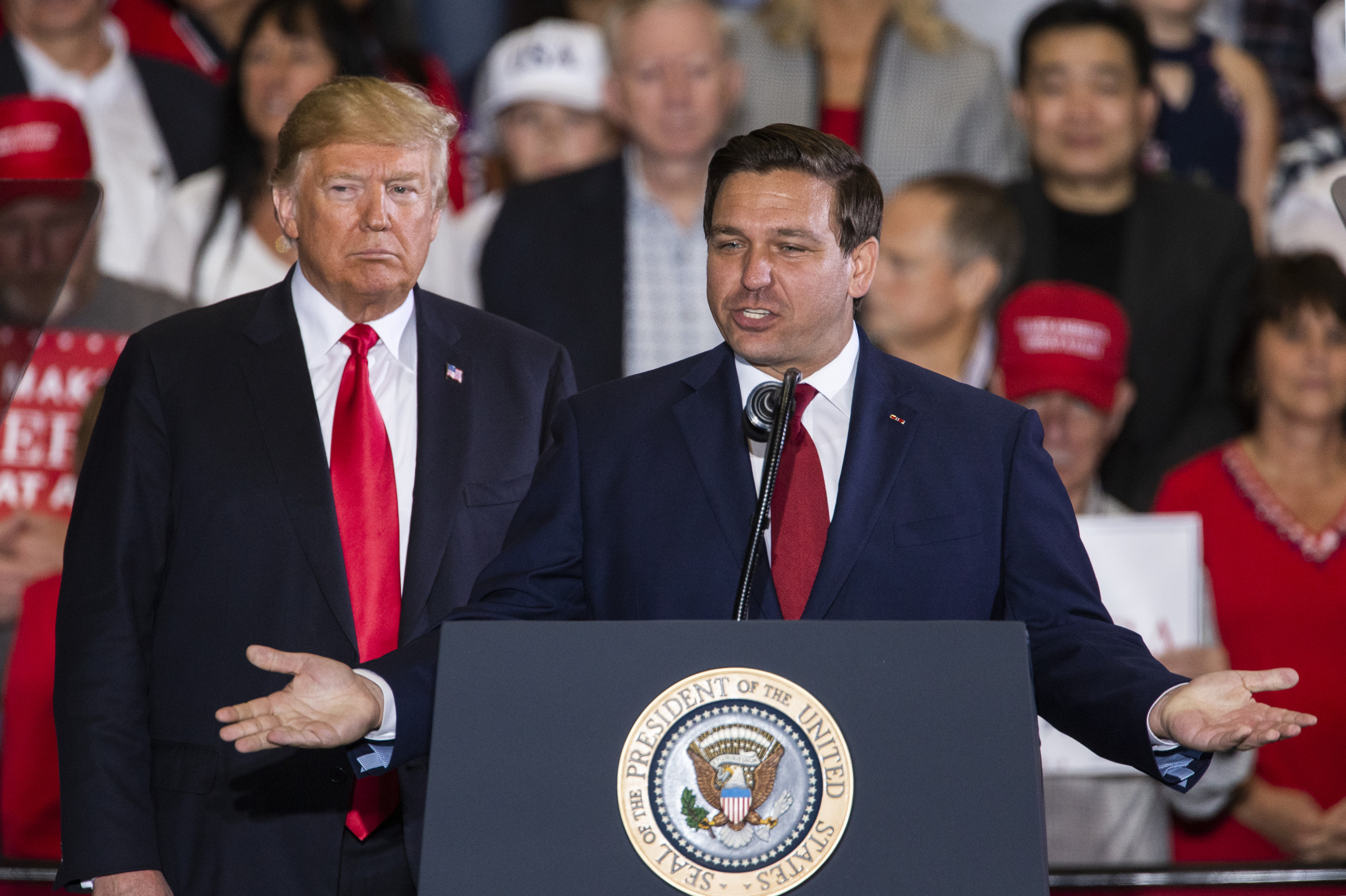I helped pass the most progressive anti-female genital mutilation (FGM) law in the United States, where I now live. But I was born and raised in Gambia, where the government passed an anti-FGM law in 2015, a law it's now working to repeal.
I was 2 years old when I was cut. No one ever said a word to me about it because it was normal in my community. Here in the U.S., I've found that it's often considered to be something that's done only in rural, stereotypically impoverished, and undifferentiated African communities. But that's not true for me. I grew up in the outskirts of the capital, Banjul, to a middle-class family. The same exists here in the United States too—the practice exists among Black, brown, and white communities of all social economic and education status. It wasn't until I was in sixth grade that I heard a group of girls talk about FGM. The cool girl, the Regina George of our school, wanted to be friends only with girls who were "clean," meaning those girls who were cut.
I wanted to be friends with them, so I went home and asked my mom if I had been cut. When my mom said that I was cut, I was so excited. The next day in school, I joined the popular girls' group, and we shamed the girls who had not been cut.
In 2010, when I was in eighth grade, I was selected to participate in a three-day workshop on gender equality by an Africa-wide feminist nonprofit at my middle school. For the first time, I was educated on the impact of harmful cultural practices like FGM, and I got context and language for the vast gender inequities that existed in the society around me. I understood for the first time why my friend, Mariama, who wanted to go to middle school, was married off soon after we completed sixth grade and why many of the girls I grew up playing with in my neighborhood never enjoyed their rights to education. I also felt ashamed and guilty for all the girls I had shamed for not being cut.
I realized then that I had an obligation to fight for a world where girls can grow to their full potential, free from violence and discrimination.
Over the years, I would join several women's rights organizations and travel across Gambia speaking with communities about the harmful impacts of FGM using survivor stories and researched data. In Gambia, 75 percent of women in the country have been subjected to FGM.
In 2015, after decades of activism and advocacy by nonprofits and activists across the country, Gambia passed a law prohibiting the practice of FGM after Yahya Jammeh, the president at the time, declared it illegal.
In 2016, Gambians voted out the dictatorial regime of Yahya Jammeh, which stifled public opinion and was rife with vast human right violations including forced exiles, torture, and killings of political opponents and innocent civilians. There were hopes for a new Gambia, one that values human rights and invests in the development of the nation and its people. Slogans like #GambiaHasDecided and #NeverAgain became the mantra.
That same year, I would move to the United States to go to college at Champlain College in Vermont. Soon after I would join the movement to end FGM in the United States, presenting in classrooms in Vermont, New Hampshire, and Washington state and testifying for the Vermont Senate Committee on Health on why they must ban the practice in the state.

In 2022, I co-founded and led the Washington Coalition to End FGM/C. While there is no state specific data in Washington to show which communities practice FGM, there are survivor testimonies across the country which show the practice existing across all communities regardless of their socioeconomic or education status, and not just limited to immigrant communities. Through the work of the Coalition, we helped Washington state pass the most progressive law on FGM in the United States—including vital provisions to empower impacted communities and allocate funding by the state for education and outreach.
You can imagine how it must feel to watch my home country make moves to repeal the law intended to protect girls and young women from being subjected to this harmful practice. So far, the Gambian government, including President Adama Barrow, and ministers of Health and Justice have failed to speak up on this violation of the rights of women. The government has failed to hold violators of the law accountable with some proponents of FGM openly violating the existing law by promoting the practice. There are at least two reported cases of FGM/C right now and the police have refused to make any arrests or prosecute. The civil society in the country has very little leverage on lawmakers or the leadership, who are mostly concern about two things: getting re-elected, even if that means repealing a law that protects women and girls; and condemnation from the international community, including fear of not being able to travel to places like the United States.
The anti-FGM law in Gambia should remain enacted. Gambian women and girls deserve a society where they are free from violence and their rights respected and protected.
I implore all friends of Gambia, the United States government, and international organizations to call on the government of Gambia and lawmakers to maintain the anti-FGM law and take proactive actions to enforce the law. Gambia must hold violators of the law to account so young girls can grow up in a society where they don't have to endure the trauma and pain I have had to live with.
Absa Samba is a survivor and an activist against female genital cutting with over a decade experience advocating for the rights of women. Absa works at the University of Washington in Seattle. She is also a Public Voices fellow on Advancing the Rights of Women and Girls with the OpEd Project and Equality Now.
The views expressed in this article are the writer's own.
Uncommon Knowledge
Newsweek is committed to challenging conventional wisdom and finding connections in the search for common ground.
Newsweek is committed to challenging conventional wisdom and finding connections in the search for common ground.
About the writer
To read how Newsweek uses AI as a newsroom tool, Click here.








